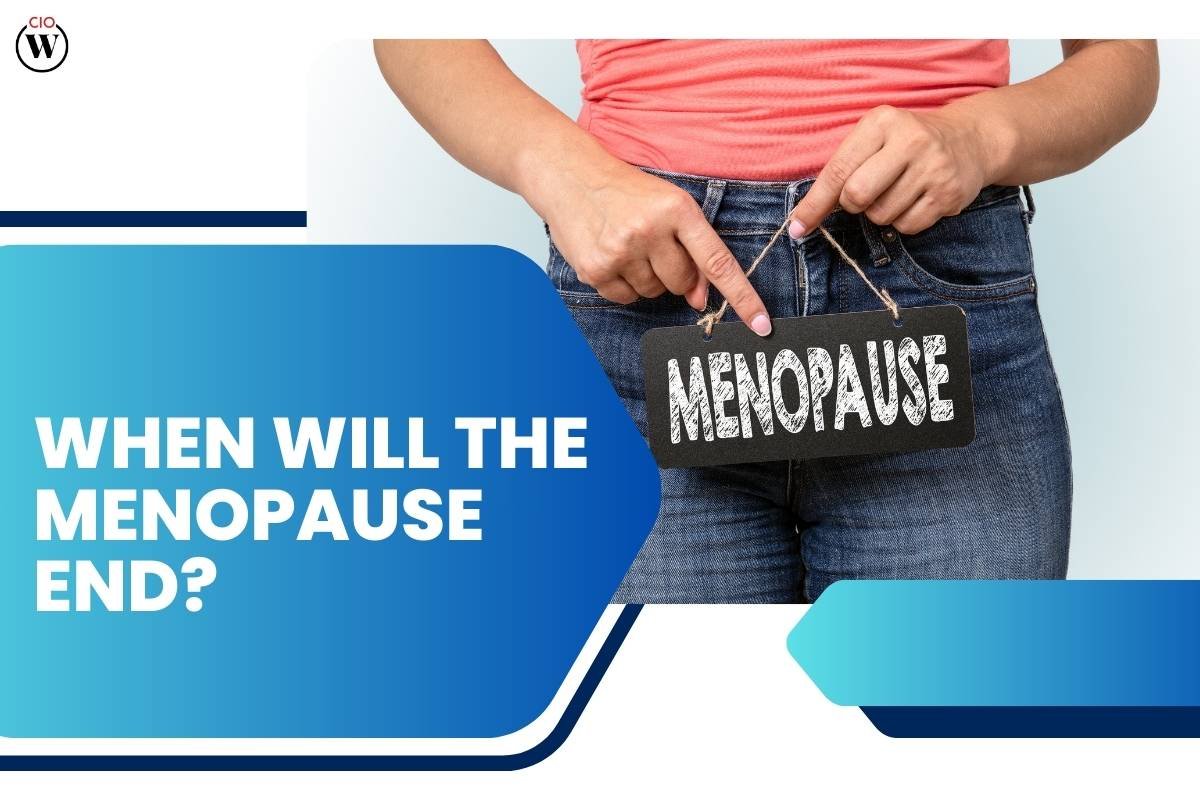Menopause, often referred to as “the change of life,” is a natural biological process that marks the end of a woman’s reproductive years. It typically occurs in women between the ages of 45 and 55, with the average age of onset being around 51. However, the duration of menopause can vary greatly from woman to woman, leading many to wonder, “When will the menopause end?”
What is Menopause?
Before delving into when will the menopause end, let’s first understand what menopause actually is. Menopause is a normal, natural process that occurs when a woman’s ovaries stop producing eggs, and her menstrual cycle ceases. This transition is marked by a decline in the production of estrogen and progesterone, two key hormones that regulate the menstrual cycle and fertility.
Symptoms of Menopause
Menopause is often accompanied by a range of symptoms that can vary in severity and duration. Common symptoms include hot flashes, night sweats, vaginal dryness, mood swings, difficulty sleeping, and changes in libido. These symptoms can have a significant impact on a woman’s quality of life and may persist for several years.
When Will the Menopause End?
The duration of menopause can vary widely from woman to woman. While some women may experience only mild symptoms for a short period of time, others may experience more severe symptoms that last for several years. So, when will the menopause end?

There is no one-size-fits-all answer to this question. The duration of menopause depends on a variety of factors, including genetics, lifestyle, and overall health. On average, most women experience menopausal symptoms for around four to five years. However, some women may experience symptoms for a shorter period of time, while others may experience them for a decade or more.
Factors Influencing the Duration of Menopause
Several factors can influence the duration of menopause and the severity of symptoms experienced. These include:
Genetics:
A woman’s genetics can play a significant role in determining her experience of menopause. Women with a family history of early or late menopause may be more likely to experience a similar timeline themselves.
Lifestyle:
Certain lifestyle factors, such as diet, exercise, and stress levels, can influence the severity and duration of menopausal symptoms. Eating a healthy diet, staying physically active, and practicing stress-reduction techniques may help alleviate symptoms and shorten the duration of menopause.

Overall Health:
Women who are in good overall health may experience milder menopausal symptoms and a shorter duration of menopause compared to those with underlying health conditions. Managing chronic conditions such as diabetes, hypertension, and obesity can help mitigate the impact of menopause on overall health and well-being.
Hormone Replacement Therapy (HRT):
Hormone replacement therapy, or HRT, involves taking estrogen and progesterone supplements to alleviate menopausal symptoms. While HRT can be effective in reducing symptoms, it is not suitable for everyone and may carry certain risks. Women considering HRT should discuss the potential benefits and risks with their healthcare provider.
Managing Menopausal Symptoms
While the duration of menopause cannot be predetermined, there are several strategies women can employ to manage symptoms and improve their overall quality of life during this transition. These include:
Lifestyle Modifications:
Making healthy lifestyle choices, such as eating a balanced diet, exercising regularly, getting enough sleep, and managing stress, can help alleviate menopausal symptoms and promote overall well-being.
Dietary Supplements:
Some women find relief from menopausal symptoms by taking dietary supplements such as black cohosh, soy isoflavones, and evening primrose oil. However, it’s important to talk to a healthcare provider before starting any new supplement regimen.

Alternative Therapies:
Acupuncture, yoga, meditation, and other alternative therapies may help reduce the severity of menopausal symptoms and improve overall quality of life. Many women find these practices to be effective complements to conventional treatments.
Medications:
In some cases, medications such as antidepressants, anticonvulsants, or low-dose hormonal contraceptives may be prescribed to help alleviate specific menopausal symptoms such as hot flashes, mood swings, or vaginal dryness.
Conclusion
Menopause is a natural transition that marks the end of a woman’s reproductive years. While the duration of menopause can vary greatly from woman to woman, most women experience symptoms for around four to five years on average. Factors such as genetics, lifestyle, and overall health can influence the severity and duration of menopausal symptoms. By making healthy lifestyle choices, exploring alternative therapies, and seeking support from healthcare providers, women can effectively manage menopausal symptoms and improve their overall quality of life during this transition. So, when will the menopause end? While there’s no definitive answer, understanding the factors that influence menopause can help women navigate this phase of life with greater ease and confidence.









